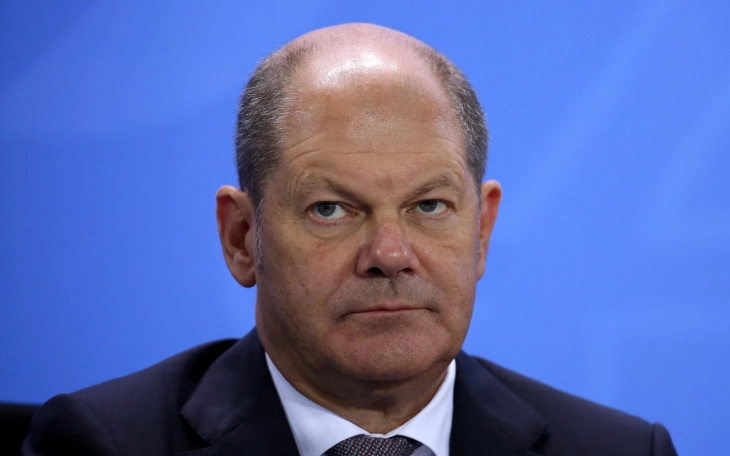Germany's next leader wants vaccine mandate by March

Berlin, 30 November 2021 (dpa/MIA) - German Chancellor-designate Olaf Scholz on Tuesday spoken out in favour of making vaccination against Covid-19 compulsory by the beginning of March at the latest.
"My proposal is that the timeframe for everyone getting vaccinated is not too drawn out. So my proposal is early February or early March," Scholz told the Bild television channel.
He emphasized, however, that the power to introduce compulsory vaccination lay with the Bundestag, Germany's parliament, adding that he thought draft legislation should be introduced before the end of the year.
Scholz stressed that he thought it should be a "matter of conscience" for individual Bundestag members, meaning the deputies should not have to vote along party lines.
His comments came as Germany faces its fourth and largest wave of coronavirus infections so far.
Scholz and his incoming centre-left coalition government have been under pressure to act as hospitals in parts of the country fill up with Covid-19 patients.
Tougher measures to stem transmission, such as additional contact restrictions for the unvaccinated, will be finalized by Thursday, Angela Merkel's spokesperson Steffen Seibert announced on Tuesday, after the caretaker chancellor held talks with her successor Scholz and Germany's state leaders.
During the telephone conference, multiple state premiers called on the federal government to "quickly initiate" compulsory vaccination.
Also discussed was Germany's vaccine booster campaign, which, it was agreed, will now go into overdrive, with federal and state governments intending to make up to 30 million vaccinations possible between now and Christmas. To this end, pharmacists will now be allowed to administer jabs.
Nearly 55 million adults have now been fully vaccinated against the coronavirus in Germany. That represents a vaccination rate of 79.1 per cent of the population aged 18 and older, according to figures released on Tuesday by the Robert Koch Institute (RKI).
Among 12- to 17-year-olds, the rate of those fully vaccinated is 46.1 per cent, according to RKI data.
Earlier Tuesday, Germany's Federal Constitutional Court issued rulings that indicated room for manoeuvre for policy-makers in the current fourth wave, including the possibility of the return of sweeping lockdowns.
The court in Karlsruhe found that the federal government had acted legally when it imposed curfews and contact restrictions during the third wave of the pandemic earlier in 2021.
The measures had significantly interfered with various fundamental rights, but were ultimately compatible with the country's basic law given "the extreme danger of the pandemic," the court announced.
In a second case, the judges rejected complaints by parents and students against the school closures ordered at the time. However, the court recognized for the first time a "right of children and young people vis-a-vis the state to school education."
There were signs that Germany's wave may be reaching a plateau on Monday, when the RKI reported a so-called reproduction value of 0.93, with a tendency to sink further. The number indicates on average how many others each infected person passes the virus onto.
Virologist Hendrik Streeck described this as a "very good sign," telling media group RTL there was reason to be cautiously hopeful.







